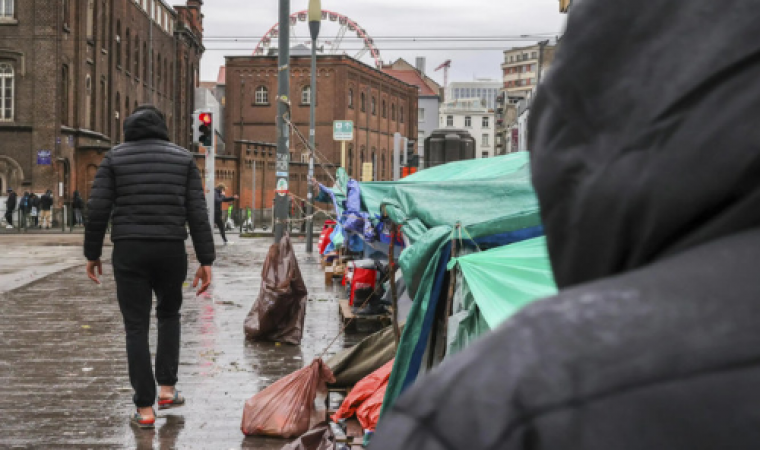
Brussels: The Belgian government's recent decision to suspend the provision of shelter to single male asylum seekers in collective centers has ignited controversy, with some perceiving it as discriminatory and unnecessary.
The suspension was announced by Annelies Verlinden, the Belgian Interior Minister, who stated that the move was driven by the imperative to safeguard the security of Belgian citizens.
Verlinden underscored that the government would be offering alternative housing options to single male asylum seekers, including hotels and apartments. Furthermore, financial assistance would be extended to aid these individuals in covering their accommodation costs.
Also Read: Hero MotoCorp Introduces Karizma XMR 210: A Dynamic Addition to the Performance Motorcycle Segment
Critics of the suspension, such as the Belgian Refugee Platform—an umbrella organization representing refugee-focused entities—have labeled the decision discriminatory and unjustifiable.
The Platform argued that there is no substantial evidence indicating that single male asylum seekers pose a greater security risk than other groups seeking asylum.
Additionally, they asserted that this suspension could complicate the accessibility of necessary support for asylum seekers.
Also Read: Facebook Unveils Project Cambria: A Game-Changing VR Headset for Enterprise
The Belgian government, on the other hand, has firmly defended its stance, asserting that the measure is indispensable to safeguard the nation's security interests.
Officials indicated that the policy would be reevaluated after six months, determining whether the suspension would be lifted or maintained.
This recent suspension is part of a series of measures enacted by Belgium to tighten its asylum policy. These measures include a reduction in the number of asylum seekers accepted by the country and stricter criteria for obtaining a residence permit.
The government's asylum policies have drawn criticism from human rights organizations, which argue that these policies are both discriminatory and inhumane. Critics contend that these policies are rendering it increasingly arduous for asylum seekers to find safety and rebuild their lives.
Belgium's administration, in response, has consistently defended its asylum policies, contending that they are essential to safeguard its borders and manage immigration effectively.
Officials acknowledge the nation's responsibility to provide protection to refugees while also balancing this commitment with the need to ensure the safety and well-being of its own citizens.
The suspension of shelter services for single male asylum seekers has the potential to exacerbate tensions between Belgium and human rights organizations. The implications of this suspension—whether it will be lifted after six months or transmute into a permanent policy—remain uncertain.
The decision underscores a broader global dilemma: the balance between national security concerns and the protection of vulnerable asylum seekers. Countries often grapple with finding equitable solutions that fulfill their obligations under international law while safeguarding their own security interests.
Belgium's move to halt shelter for single male asylum seekers reflects the challenging dynamics surrounding migration policies. In making such decisions, governments must tread carefully, ensuring that their actions align with humanitarian principles and international obligations.
The incident resonates with the broader issue of how nations respond to the global refugee crisis. The need for cooperation, understanding, and empathy between governments, humanitarian organizations, and citizens remains paramount in addressing the multifaceted challenges that arise in such situations.
Belgium's decision to suspend shelter for single male asylum seekers has sparked debates around security, discrimination, and humanitarianism.
Also Read: Global Economic Growth Expected to Slow in 2023, But Recession Not Imminent, Says OECD
While the government cites security concerns as the basis for this move, critics argue that it could lead to further difficulties for already vulnerable individuals seeking refuge.
As the world grapples with an ongoing refugee crisis, finding a balanced approach that ensures both national security and the protection of human rights remains an intricate challenge.
The situation in Belgium underscores the complexity of these issues and the imperative of open dialogue and collaboration to reach solutions that uphold fundamental principles of humanity and justice.